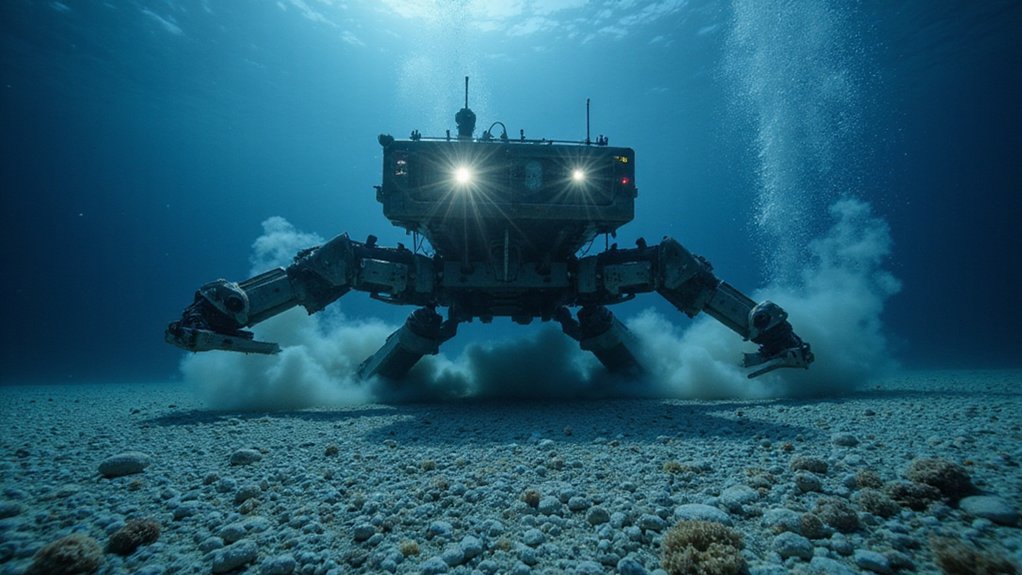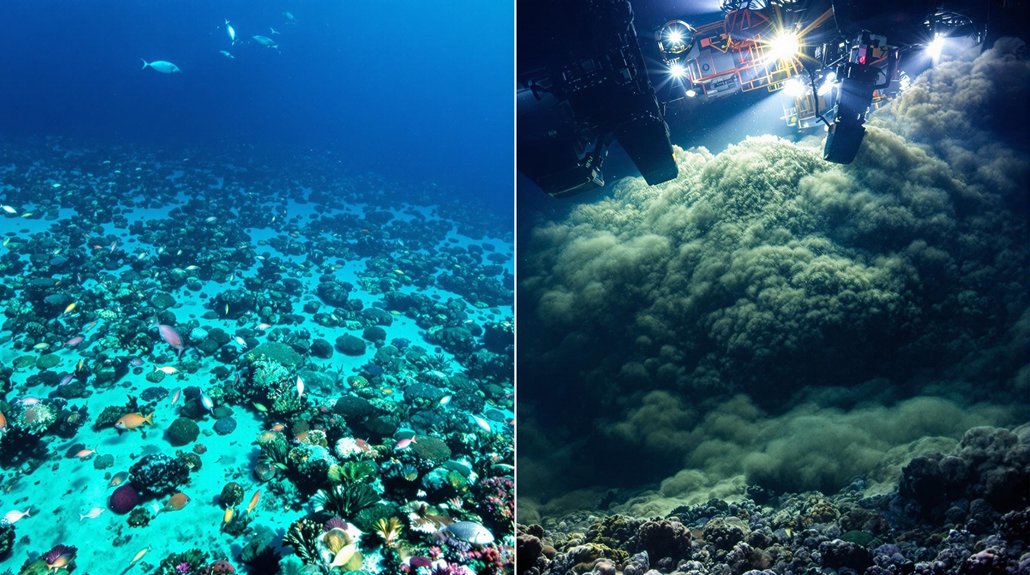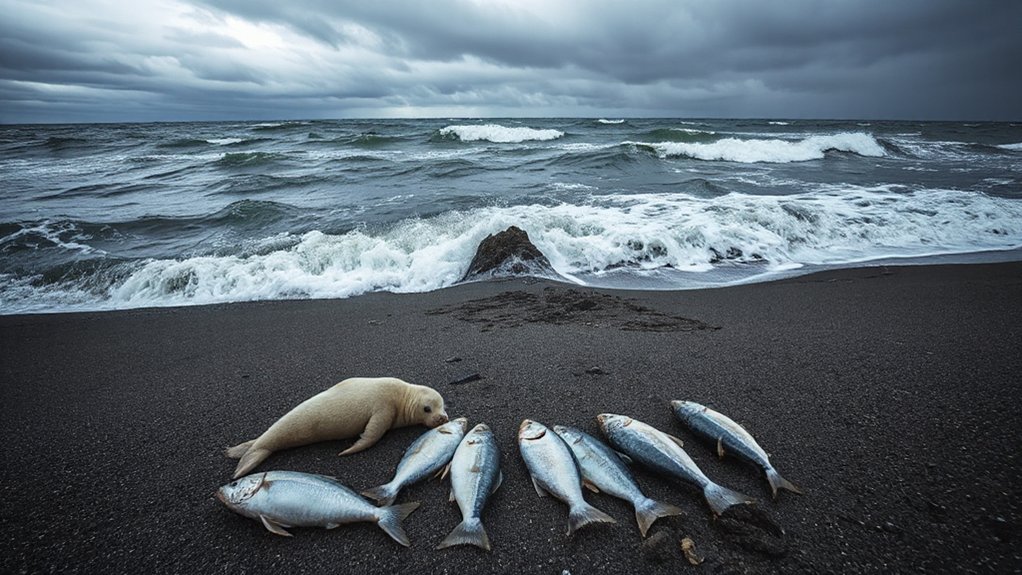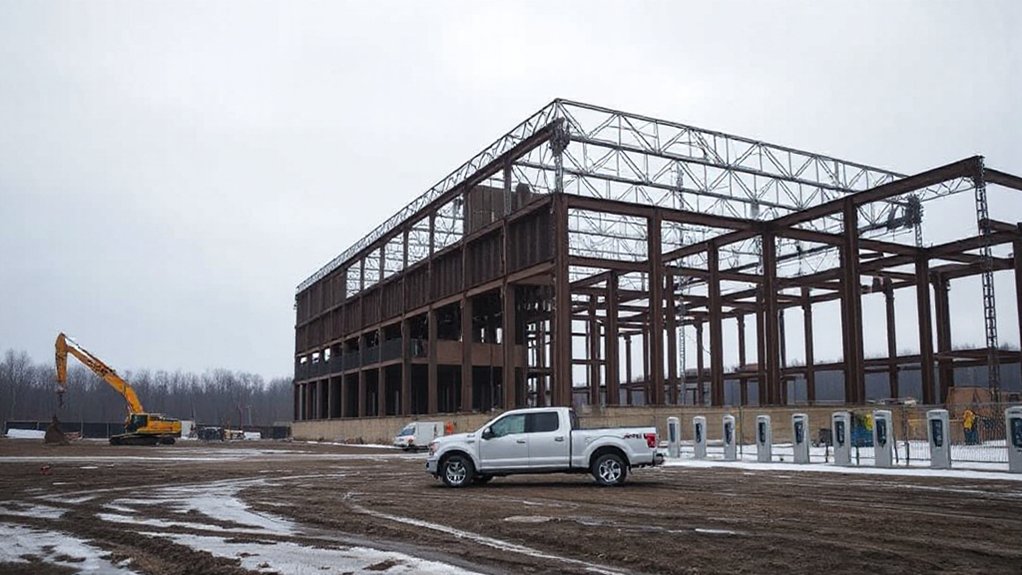While tech companies race to mine electric vehicle batteries from the ocean floor, they’re about to bulldoze ecosystems that took millions of years to build. The U.S. just ended its 30-year pause on deep-sea mining exploration, and marine scientists are freaking out. For good reason.
Picture this: massive machines grinding across the seafloor, crushing everything in their path. The equipment doesn’t discriminate. Slow-moving creatures don’t stand a chance. Those polymetallic nodules everyone’s after? They’re not just rocks. They’re homes. Ancient homes that won’t grow back in our great-great-grandchildren’s lifetimes.
Massive machines grinding across the seafloor, crushing everything in their path—ancient homes that won’t grow back for centuries.
The sediment plumes are the real nightmare though. Mining kicks up clouds of muck that spread for kilometers, smothering whatever managed to escape the machinery. A single nodule-mining operation churns out 30,000–80,000 m³ of sediment daily. Fish can’t breathe. Filter feeders choke. The water turns toxic with dissolved metals that weren’t meant to be floating around. Nice job, humanity.
Here’s where it gets personal. That tuna sandwich? Might come with a side of heavy metals if this goes wrong. Small island nations that depend on fishing are watching their food security circle the drain. Meanwhile, the mining companies promise they’ll be careful. Sure they will.
The deep ocean isn’t just some barren wasteland. It’s a carbon storage facility that’s been working perfectly for millions of years. Stir up those sediments, release that stored carbon, and watch climate change accelerate. Because that’s exactly what we need right now.
Scientists barely understand these ecosystems, yet here we go, ready to trash them. Over 5,000 new species have been discovered in just the Clarion-Clipperton Zone alone, and we’re about to wipe them out before we even know what they do. Recovery could take centuries. Or never happen at all. The creatures down there reproduce about as fast as glaciers move. Once they’re gone, they’re gone.
The noise pollution alone would make whales want to file complaints. Mining operations blast sound and light into pitch-black environments where species evolved in silence. Reproduction patterns tank. Feeding stops. Entire food webs collapse.
But hey, at least electric cars will save the planet, right? Just don’t ask what we destroyed to build them. The irony is thick enough to mine.
References
- https://www.wri.org/insights/deep-sea-mining-explained
- https://cen.acs.org/environment/water/deep-sea-mining-dilemma/101/i33
- https://www.iucn.nl/en/story/the-impact-of-deep-sea-mining-on-biodiversity-climate-and-human-cultures/
- https://www.theregreview.org/2024/11/23/weighing-the-environmental-impacts-of-deep-sea-mining/
- https://www.lse.ac.uk/granthaminstitute/explainers/what-is-deep-sea-mining-and-how-is-it-connected-to-the-net-zero-transition/






